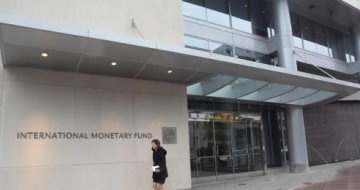
A senior official from the International Monetary Fund (IMF) on Thursday said recent signs of slowing global growth should underline the "imperative" to prepare for the next economic downturn, and urged global economies to "shore up their defenses" now.
In a blog post on its website, IMF's First Deputy Managing Director David Lipton said the global economy faces a number of complex challenges, including technological change, globalization, the lingering effects of the 2008-2009 financial crisis, and lower levels of trust in both national and multinational institutions.
"These developments threaten to fragment the international order that has governed the global economy," said Lipton, who has held the IMF position since 2011.
The World Bank said last week that global economic growth is projected to slow to 2.9 percent in 2019 from a downwardly revised 3 percent in 2018 amid rising downside risks.
Pointing out that history suggests a downturn is "somewhere over the horizon," Lipton said it is imperative to prepare for "unexpected developments," and "mitigate the impact" when the next economic downturn arrives.
The "defenses" Lipton suggested comprise financial firepower, policies to fight crises, and regulatory regimes, many put in place after the global financial crisis.
Lipton, however, noted that there is no guarantee that such measures will be sufficient to keep a "garden variety recession" from becoming another "full-blown systemic crisis."
He said that national policy options, monetary or fiscal, and public financial resources may be much more "constrained" than in the past. For example, high debt levels in many advanced economies leave the governments little room in their budgets to respond to economic slowdown as they did 10 years ago.
"The right lesson to take from that possibility is for each country to be much more careful to sustain growth, to limit vulnerabilities, and to prepare for whatever may come," he said.
Lipton also stressed the importance of "multilateral preparedness and action," noting that the ability for institutions such as the IMF to respond effectively to these challenges has required a constant process of reform that needs to continue.
"This will become all the more important if national policy tools prove insufficient to meet a crisis," he added.






















Latest comments